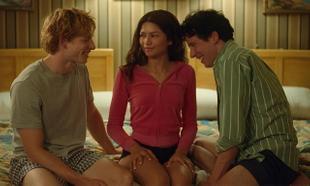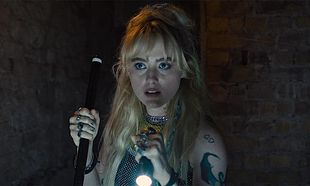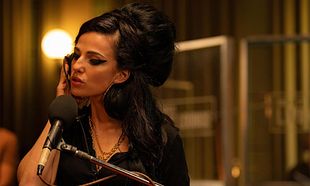You have to admire Viggo Mortensen. Since Lord of the Rings, the actor/author/painter/photographer has opened a publishing house for writers experiencing difficulty finding publication in more established venues, and his choice of roles has seen him actively retreat from the spotlight. The latest, Jauja, a reference to the mythical land of plenty, couldn’t be further from the multiplex audiences if it tried.
Mortensen is Captain Gunnar Dinesen, a Danish engineer in Patagonia in the late 19th century overseeing an engineering project for the Argentine army, who are systematically eradicating the native population. With him is his fifteen-year-old daughter Inge (Malling Agger), who has fallen for a young Argentine soldier. One night, Dinesen wakes to find that Inge and the soldier have fled the camp and he makes his way into the desert to track her down…
That’s the story but what gets the attention is Lisandro Alonso’s austere, Beckettian style. Almost theatrical in approach, the director has his actors stand in the centre of his (largely) motionless frame and gaze into the distance, referring to characters off camera, who would then enter the frame as if they were coming from stage left (the frame itself similar to the silent era - squared with curved corners). The shots are long, the scenery unchanging. There are no close ups. To continue the Beckettian nods there’s the continual reference to Zualunga, an Argentine officer whose genocidal tendencies are notorious and who obviously never shows up.
It takes time to get used to Alonso’s stripped back style, but time is what the director offers. Jauja is slow. Very slow. But then it takes on its own kind of rhythm, pulling the viewer trance-like into its dreamy world. The visuals of the desolate, barren landscape may not provide anything interesting to look at until the landscape itself becomes the reason to look, taking on a strange beauty.
Mortensen (speaking Danish and Spanish) isn’t asked to emote much, stumbling from shrubbery to rock, but Alonso throws up some scenes to break the monotony, like Dinensen discovering bodies and dying soldiers along the way, and the strange woman (Norby) who lives in a cave. It’s here that Morstensen reminds the audience of his acting prowess and Jauja takes a turn for the surreal, as if Alonso has lulled one into thinking they’re watching one film before turning it into another. Trippy stuff
With Alonso leaving proceedings open to interpretation (is the quest for his daughter a quest for innocence, a quest of folly like the search for Jauja?) this is certainly a conundrum but a strangely spellbinding one.










































































